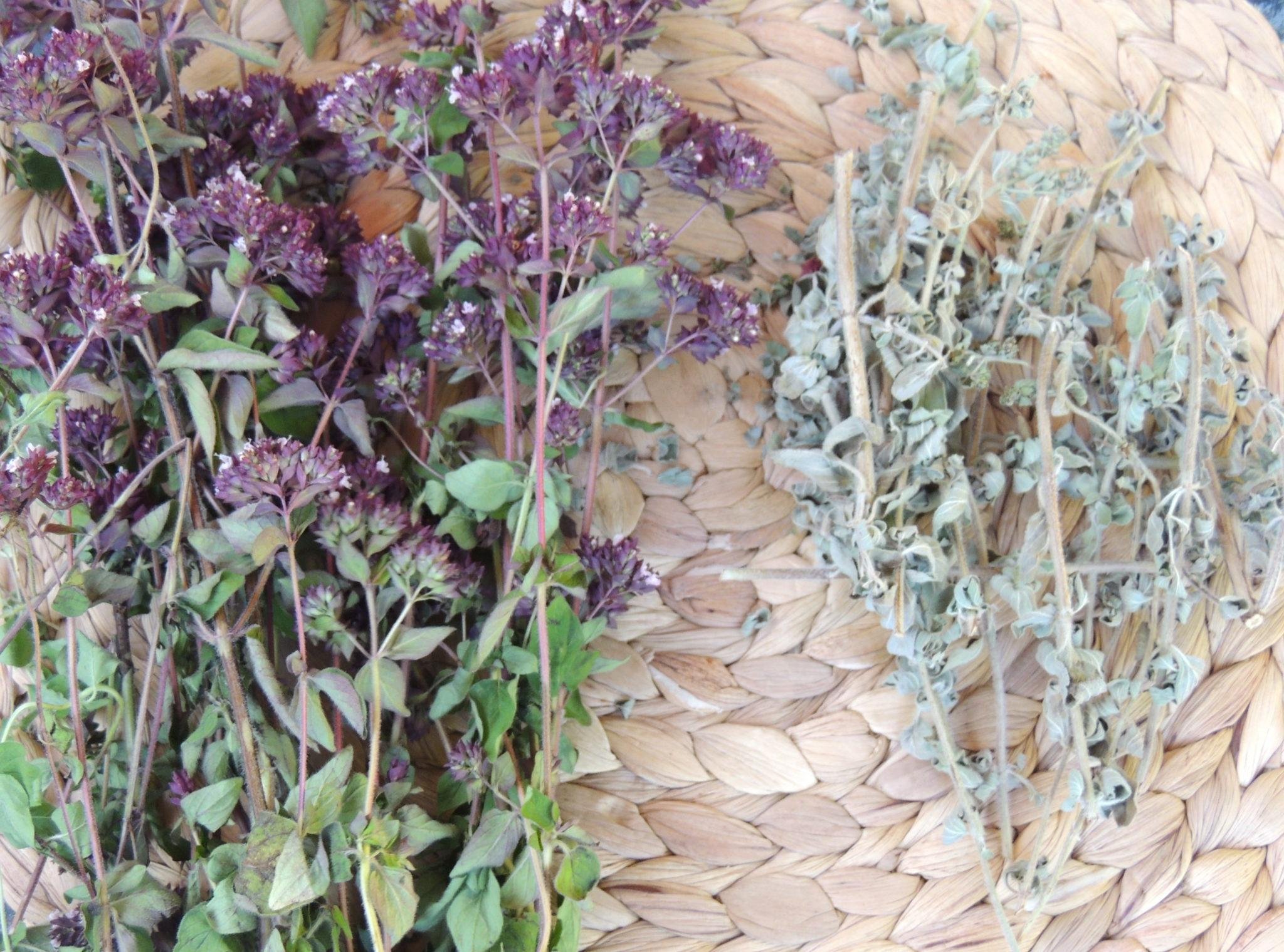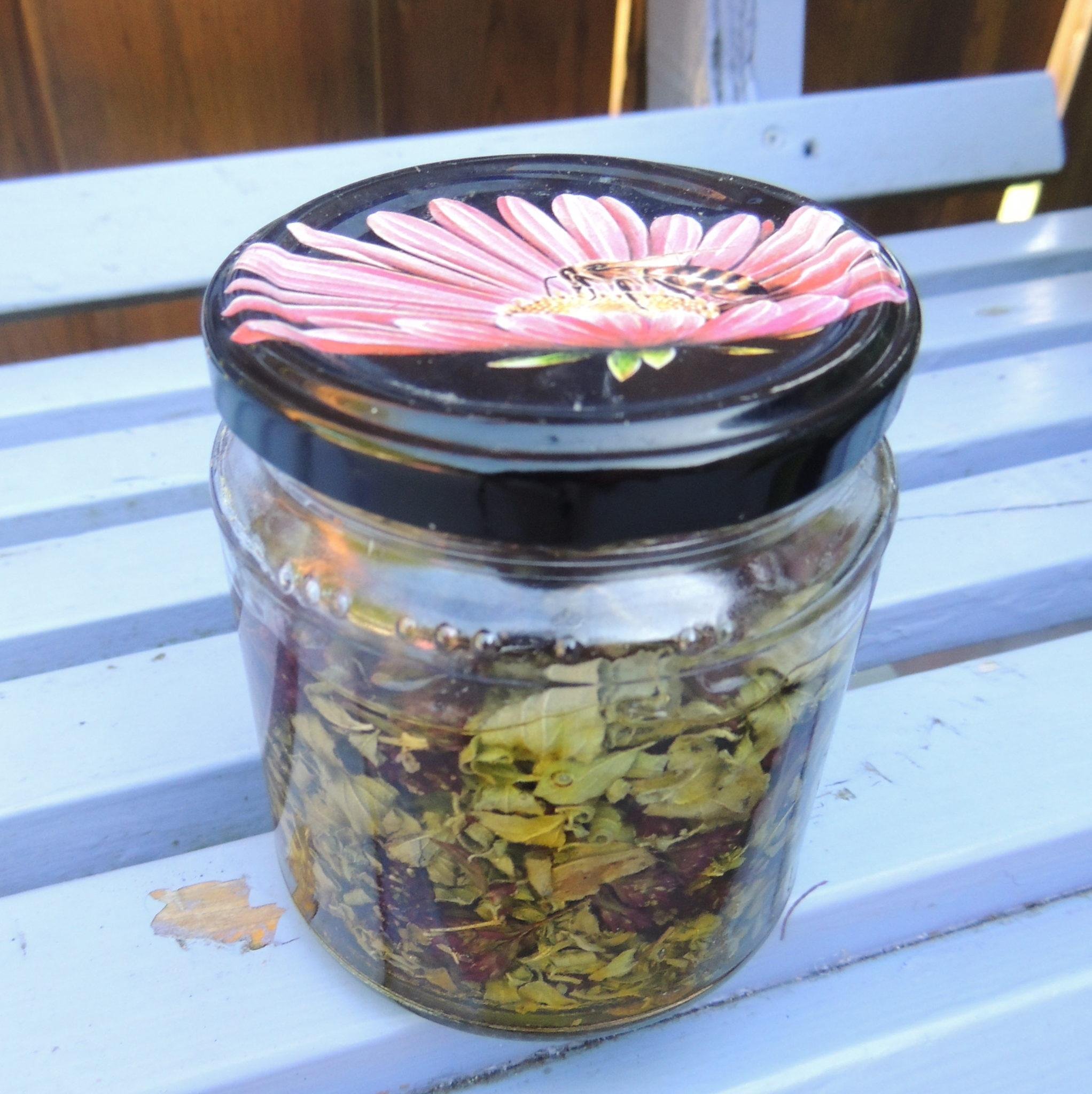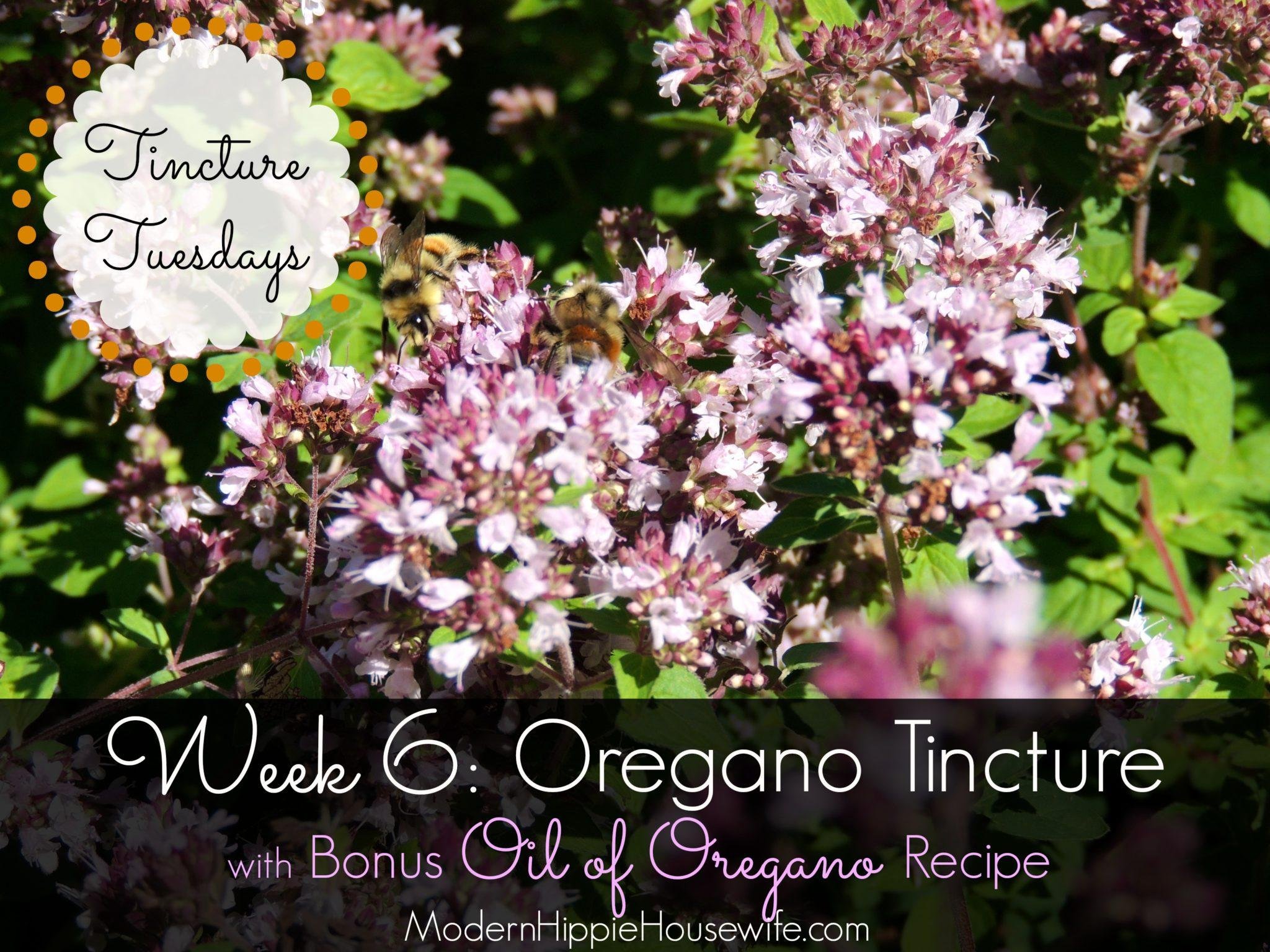How to Make an Oregano Tincture
*This information is based on my own research and reading–I always encourage you to do your own research too. Consult your doctor if you are considering changing, or going off, any medication (read my full disclaimer/disclosure here.)*
Oregano is beautiful this time of year - speckled with light, purple flowers, and buzzing with bumble-bees (can you spot the bees in the picture?) I even have a bouquet of oregano sitting on my kitchen window sill right now. Side note, this morning I noticed that there's a dried, bumble-bee amongst the flowers - a little, bumble-bee corpse - it doesn't even look real, poor little guy.
 Oregano is most commonly used in North America as a cooking-herb. You probably even have some dried, oregano sitting in your spice cupboard right now, but may not be aware of it's powerful, medicinal properties.
Oregano is most commonly used in North America as a cooking-herb. You probably even have some dried, oregano sitting in your spice cupboard right now, but may not be aware of it's powerful, medicinal properties.
Until recently, I had only ever cooked with oregano. I add it fresh and dried to sauces, soups, and salads dressings. Which reminds me - want to know the secret to making the BEST Greek Salad? Of course you do. It's keeping the dressing simple. Use just two ingredients for the dressing: quality, olive oil and fresh oregano (trust me on this, a Greek lady told me herself!)
On the other hand, my husband, who's probably never cooked with oregano in his life (or at all), has been taking oregano oil for years! When I first met him, he'd take it daily to help boost his immune system and fight colds while training for his fights (he's a kickboxer.) It seemed to work for him, but I refused to take any myself because I was skeptical, still loyal to pharmaceutical companies and, well, the stuff is NASTY! I know better now and take it anyways (you should see my oil-of-oregano-face.)
Turns out, hubby was on to something.
The Health Benefits of Oregano
- Oregano is high in antioxidants. "One active agent in oregano is rosmarinic acid, which is a strong antioxidant that may support immune system health."
- "Oregano oil is also a excellent source of vitamins and minerals. It is high in the vitamins A C, and E complex, as well as zinc, magnesium, iron, calcium, potassium, copper, manganese and niacin."
- It has a powerful ability to fight infections. "The science regarding the ability of oregano oil to conquer infections is very clear, showing a very powerful effectiveness against candida albicans, aspergillus mold, vaginal infections, staff infections, and more."
- Oregano is antibacterial, anti-fungal, and may even kill food borne pathogens such as listeria (1). According to this article, "oregano oil presented such a strong action against germs that it could easily fight Salmonella and E. coli."
- Oregano is used to treat respiratory infections.
- Oregano is anti-inflammatory.
- Oregano encourages sweat production helping to detox your body, and making it a must-have for cold and flu season.
- According to this article, oregano can be taken to reduce body fat! "The active ingredient in oregano oil known as carvacrol can actually modulate genes and reduce irritation in white adipose tissue."
When to Use an Oregano Tincture or Oregano Oil
 Take during cold and flu season to boost immunity.
Take during cold and flu season to boost immunity.- Take at the first sign of a cold.
- Take for gastrointestinal issues (think diarrhea.)
- You can use homemade, oregano oil (like the recipe below) topically on cold sores, nail and foot fungus, and sore joints and muscles. Don't use on open skin.
- Incorporate oregano oil into your body butter to use as a natural bug repellant.
- Take oregano as a digestive aid. It's ability to stimulate bile flow improves digestive health.
- Due to it's high antioxidant properties, take oregano to fight against cellular deterioration, a.k.a aging.
- Oregano can relieve allergy symptoms
- May reduce body fat.
How to Make an Oregano Tincture
If you haven’t yet, you may find it helpful to read week one’s post, Tinctures 101.
- You can use both the flower and and leaves for the tincture. Place them in a jar, and cover them with 80-proof alcohol, like vodka, gun or rum.
- Let the jar sit for 3-6 weeks, out of sunlight.
- Strain the mixture and transfer to a tincture bottle, or proceed to make a double-strength infusion.
- Take one adult dose, two droppers full, for any of the ailments listed above.
How to Make Oregano Oil
I talked briefly about infusing oils in Week 4's, Calendula Tincture, post, and making oregano oil is no different, so I'll say what I said then:
The summer months are an ideal time for infusing oils: flowers and herbs are abundant, and the solar light feeds the infusion process. I risk sounding like a non-modern hippie when I say this, but there’s something more magical and healing about the sun infusing oils, as opposed to the stove-top or slow-cooker method.
Although the solar-infusion method takes much longer, I prefer it (in the summer months, at least), so that’s the method I'll discuss.
To infuse oils via the sun/window sill method:
 Ensure that the oregano (and any herb/flower/leaf that you may be using) is dry. Unlike an alcohol infusion (tincture), any moisture will create a breeding ground for bacteria to grow.
Ensure that the oregano (and any herb/flower/leaf that you may be using) is dry. Unlike an alcohol infusion (tincture), any moisture will create a breeding ground for bacteria to grow.- Fill a jar about 3/4 full of dried, petals and flowers, then top the jar up with liquid, oil. I like to use olive oil, grape seed oil, avocado oil, or sweet almond oil for my infusions (and sometimes even a combo of the four.)
- Seal with a lid, and leave it on a sunny window sill.
- Give it a shake every few days.
- After 2-3 weeks, strain it with a fine sieve or cheese cloth, making sure to squeeze all of the oil out of the herb.
- Transfer the oregano oil to an amber, tincture bottle and store in a cool place for future use.
Take one adult dose, two droppers full, for any of the ailments listed above.


